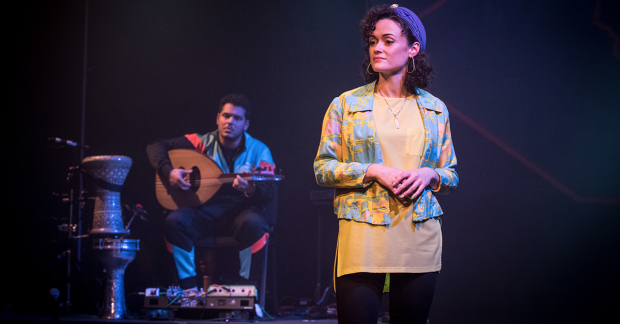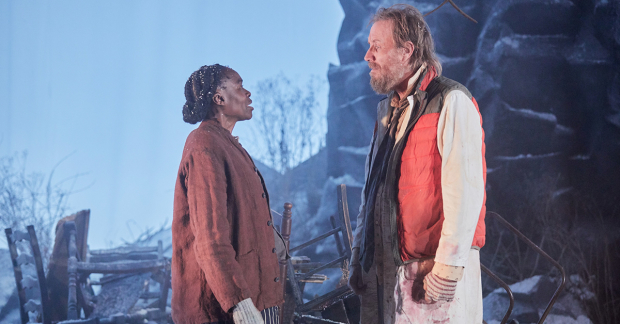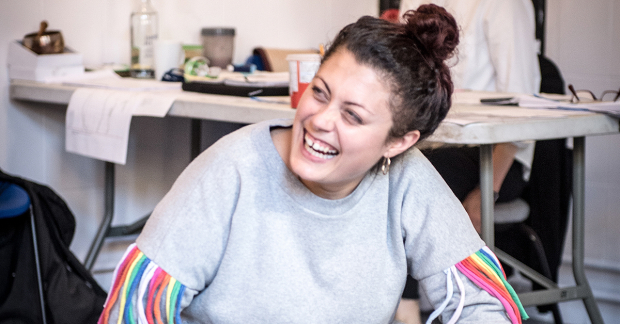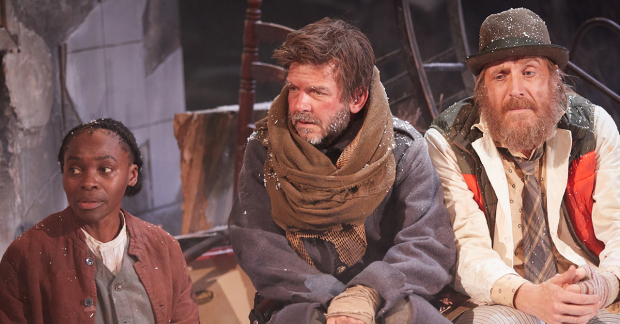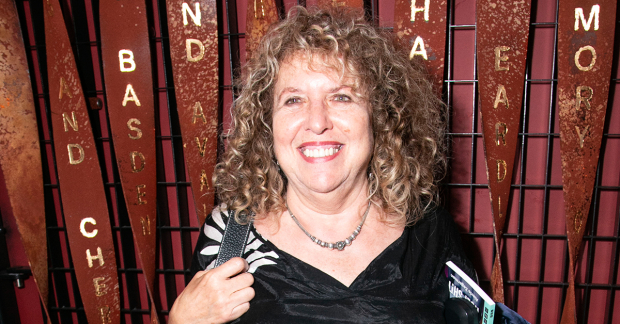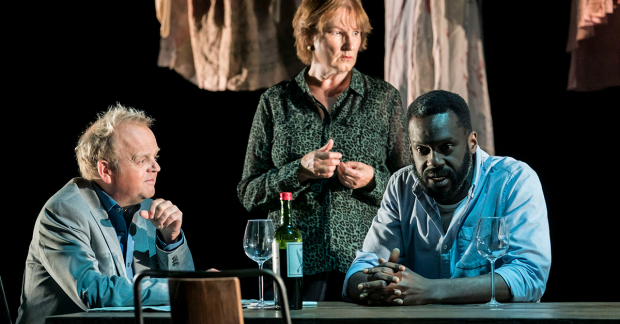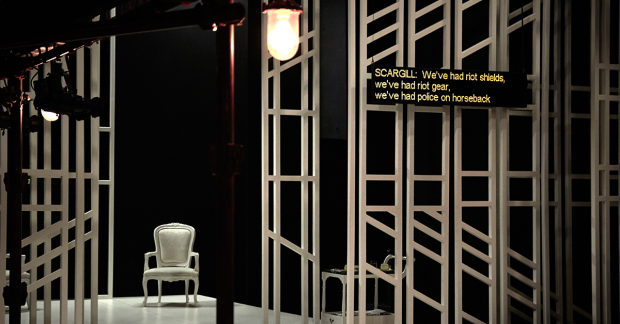Review: A Kind of People (Royal Court)
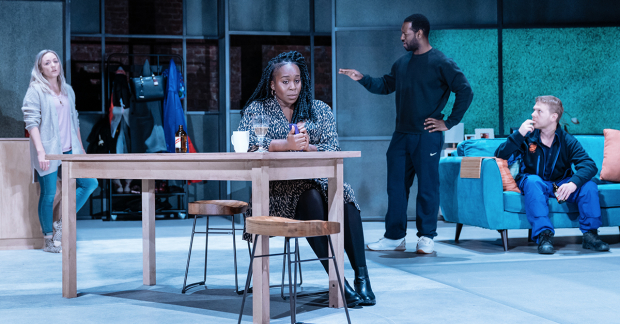
© Manuel Harlan
Gary wants a promotion; Victoria is looking for a team leader at work; Nicky and Anjum want to get their respective kids into grammar school, and Karen is trying to move on with her life after a break-up. All these innocuous, everyday events coalesce in A Kind of People but none are as innocent or as harmless as they seem. Gurpreet Kaur Bhatti's show is a pressure cooker that no one realises they are in, a powerful exposé of the prejudices running through today's society.
The play starts as a series of pleasantries, some light-hearted banter during a flat party that swiftly turns sour. Michael Buffong's direction is initially warming and gentle, with Anna Fleischle's set a series of recognisable rooms that are compartmentalised by raising and lowering walls. Claire-Louise Cordwell's Nicky is friendly and easy-going; Petra Letang's Karen quick-witted and assured; Thomas Coombes' Mark an affable best mate. All revolve around Richie Campbell's energetic Gary, who inadvertently opens a can of worms when he invites his boss Victoria into the celebration after work drinks.
And then the beating heart of this play is unveiled, a once harmless narrative ingeniously undercut with insightful and incendiary commentary. Bhatti contextualises a series of complex sociopolitical issues by focussing them in on this local community – a loving couple, a nondescript workplace and a friendship between old schoolmates all fall apart when true personalities are exposed. Buffong's blunt force direction breaks down the beliefs of this group and holds them up for all to see.
A Kind of People is a show that gives everyone the chance to both empathise with one part of the narrative and feel ashamed by another – this play about privilege deftly deals with a multitude of points of view. But more than that, Bhatti's script ensures that its audience actively squirm in their seats, shout out in anger and look away ashamed when faced with uncomfortable truths. It allows both the characters and those watching to feel heard through the voices of some and to look guilty in the eyes of others – discrimination is still highly prevalent and plastering over the cracks will not suddenly make it vanish. Gary has overtly misogynistic tendencies. Victoria overflows with a simmering racial bias. Anjum's unrelenting commitment for her son to get into the good school displays classist tendencies. Fleischle's stage becomes a mirror to the most unpleasant facets of the human psyche – it reflects them back and forces those watching to pay attention.
Every time the audience recoils, every time there is an audible gasp, exclamation or cry of outrage, the production gains momentum. It draws energy from these outward reactions and grows more impactful with every scene – the climax is an earth-shattering piece of searing honesty and pain, perfectly counter-balanced with an epilogue that reminisces about a happier, carefree time. The overall effect takes a collaborative effort – Buffong's vision brings out the complexities in each character and every member of the ensemble gives a performance that is intentionally imperfect, relatable and true to life.
It's hard at times to fully grasp the depths of Bhatti's rhetoric, to empathise with Gary's or Nicky's or Anjum's positions in just one viewing. But it's impossible not to be floored by the sheer power of this playwright's gut-wrenching prose. A Kind of People quickly dispenses with platitudes and reveals the flaws at the core of a supposedly progressive population – a difficult but necessary piece.



